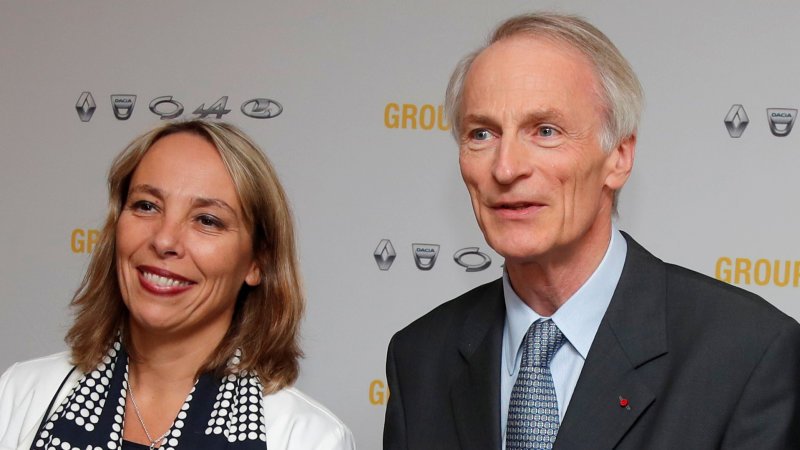Renault ousts CEO days after Nissan gets a new one

Renault ousted chief executive Thierry Bollore on Friday, as the French carmaker and its Japanese partner Nissan seek to rekindle their alliance following the scandal-hit tenure of former alliance supremo Carlos Ghosn.
Tensions between Renault and Nissan, which picked a new CEO on Tuesday, have been high since Ghosn's arrest in Tokyo last year on allegations of financial misconduct, which he denies.
Bollore, who was close to Ghosn and had strained relations with Nissan's previous boss, will be replaced on an interim basis by Renault finance director Clotilde Delbos.
With new faces at the helm, Renault chairman Jean-Dominique Senard is hoping to draw a line under almost a year of turmoil and revive cooperation between two carmakers once seen as destined to fully merge.
That is vital at a time when auto markets are slowing and carmakers are having to invest in costly new technologies as well as meet challenging European emissions regulations.
"We're at a new stage now for this alliance. Sometimes you need new management ... to breathe new life into things," Senard, who was brought in earlier this year from tyre maker Michelin, told a news conference in Paris.
He said three members of Renault's 18-strong board abstained in the vote to remove Bollore, who hit out at his looming dismissal in a newspaper interview the night before, calling it a coup.
Following Ghosn's arrest, a feeling of stagnation around joint Renault-Nissan projects, including on issues such as advancing on cost savings, had begun to set in, people at Renault have said. These would now be the first priority, according to a source close to the carmaker.
"There are a lot of concrete matters that have already been identified, including on the industrial front: working on batteries, electric vehicles, connectivity, purchasing and self-driving cars," the source said.
Shares in Renault closed up 5.1%.
'Coup de force'
Tensions between Renault and Nissan were further inflamed this year, including during various spats over governance reforms, and after a failed deal to pair Renault up with Fiat Chrysler, which withdrew a merger offer.
Senard reiterated on Friday that a tie-up with Fiat, which was abandoned in June, was not at present on the agenda.
The chairman denied there had been pressure from Nissan or from the French state — which has a 15% stake in Renault — to remove Bollore in a kind of quid pro quo.
"It so happens that Nissan's governance has shifted. There is no link between the two," Senard said. "At no time did anyone from Nissan put the question of Mr Bollore on the table."
Renault, the dominant partner in the alliance with a 43% stake in Nissan, named two deputies to back up Delbos - top sales executive Olivier Murguet and a senior manufacturing and supply chain chief, Jose-Vicente de los Mozos.
The triumvirate has echoes of the new top team announced on Tuesday by Nissan.
The Japanese firm picked Makoto Uchida, previously the head of its Chinese business, to replace Hiroto Saikawa, who stepped down as CEO in September after he admitted to being improperly overpaid.
Uchida is known for close ties to Renault, which could help mend fences in the alliance.
Saikawa and Bollore barely spoke and were seen as clear irritants to the relationship between the two companies, French official and company sources told Reuters in June.
Before his ouster, Ghosn had been working on a plan for a full merger of Renault and Nissan, but had met resistance in Japan, which is concerned about French government influence in the alliance.
Bollore said he had only found out his job could be on the line in a French press report on Tuesday.
"The brutality and the totally unexpected character of what is happening are stupefying. ... This coup de force is very worrying," he told Les Echos newspaper on Thursday evening.
Nouvelles connexes


